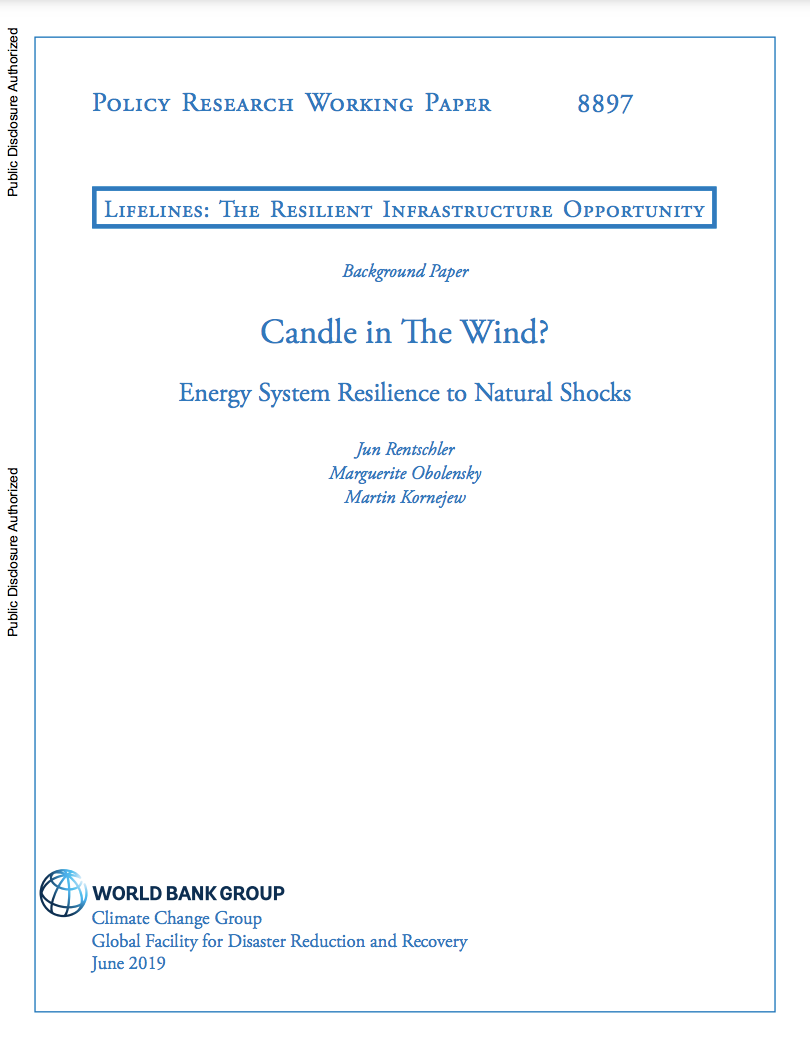This study finds that natural shocks -- storms in particular -- are a significant and often leading cause for power supply disruptions. This finding is based on 20 years of high frequency (i.e. daily) data on power outages and climate variables in 28 countries -- Bangladesh, the United States and 26 European countries. More specifically: (1) Natural shocks are the most important cause of power outages in developed economies. On average, they account for more than 50 of annual outage duration in both the US and Europe. In contrast, natural shocks are responsible for a small share of outages in Bangladesh, where disruptions occur on a daily basis for a variety of reasons. (2) Outages due to natural shocks are found to last significantly longer than those due to non-natural shocks in -- e.g. more than 4.5 times in Europe. Reasons include the challenge of locating wide-spread damages, and the sustained duration of storms. (3) Several factors can reinforce the adverse effect of natural shocks on power supply. In the US, forest cover is shown to significantly increase the risk of power outages when storms occur. (4) There are significant differences in network fragility. For instance, wind speeds above 35 km/h are found to be 12 times more likely to cause an outage in Bangladesh than in the US. This difference may be explained by a range of factors, including investments in infrastructure resilience and maintenance.
Candle in the Wind?
Energy System Resilience to Natural Shocks
June 2, 2019

